Blood Sugar
Blood Sugar and the Development of Insulin Resistance
What is insulin sensitivity versus insulin resistance?
When we eat carbohydrates, our pancreas secretes insulin.
Insulin tells the cells of our body to uptake glucose or sugar, removing it from our blood stream. When the cells listen to insulin's message and respond by lowering our blood sugar, they are working well. Sugar moves out of our bloodstream into our cells. This is insulin sensitivity. This is what we want!
Eating too many refined carbohydrates causes too much insulin release and over time, the cells down-regulate their receptors for insulin or "ignore" the message. Imagine the cells getting a bit bratty and saying "this message again!? I'm tired of it, I'm not going to listen." They stop doing their job of taking glucose out of the blood stream and into the cells. This results in chronic high blood sugar.
This is insulin resistance.
It's a state where the body is overfed but the cells are starving. Excess blood sugar can damage our tissues - our cells, our blood vessels, our nerves, even our brain! The excess stores as fat, around our abdomen and in our liver.
Symptoms of Insulin Resistance
Elevated blood sugar
Sugar Cravings
Increased Hunger or Thirst
Abdominal Weight Gain
Non-alcoholic Fatty Liver
Frequent infections - Sugar Suppresses the Immune System
Fungal and/or Yeast infections - Sugar feeds yeast and mold!
Brain Symptoms such as Poor Memory
Risk factors including a family history of Type II Diabetes or Gestational Diabetes
Testing your Blood Sugar
There are several easy and very inexpensive tests that your naturopath or family doctor can order to assess your blood sugar balance and insulin sensitivity.
Hemoglobin A1C (HbA1c) - is a test that measures how much sugar is on your hemoglobin in your red blood cells. The A1C test measures the percentage of your red blood cells that have sugar-coated hemoglobin. Because red blood cells live in the body for about 120 days, this test tells us how well your blood sugar has been doing over the past 3-4 months, versus a fasting glucose test which only reflects one day of blood sugar levels.
HOMA-IR - You can also request your fasting insulin and fasting glucose and have your naturopathic doctor calculate your HOMA-IR. HOMA-IR stands for Homeostatic Model Assessment of Insulin Resistance, and can determine the presence and extent of any insulin resistance that you might currently have. It is a powerful tool that can detect early insulin resistance when dietary and lifestyle factors are still incredibly effective in the prevention of diabetes. I sometimes call a diagnosis of early insulin resistance pre-pre-pre diabetes (yes, I made that up) but patients get really excited to be empowered with information that they can act on NOW.
Balancing your Blood Sugar With Diet
So much of your blood sugar balance can be achieved through diet, especially focusing on our macronutrients, carbohydrates, proteins, fats and fibre.
Carbohydrates
It's time to eliminate refined carbohydrates from your diet. Refined sugar, white flour, white rice, processed foods such as boxed cereals and sweetened yogurt, send our blood sugar on an up and down roller coaster ride. Choose smart carbohydrates with lots of fibre such as sweet potato, brown rice, oatmeal, and quinoa more often for a slow release of blood sugar.
Protein
To stabilize blood sugar, eat protein with every meal & snack! Protein foods include meat, greek yogurt, cheese, eggs, beans, nuts & seeds.
Good Fats and Fibre
Good fats such as avocado, coconut and olive oil slow down the release of carbohydrates from our digestive tract to our blood.
Similarly, fibre slows the sugar release, helping reduce blood sugar spikes. High fibre foods include vegetables, fruit, seeds (flax, chia, hemp), whole grains (brown rice, wild rice, whole oats, buckwheat, quinoa), beans and lentils, and fibre supplements such as psyllium. Try chia pudding for your next breakfast! It's loaded with protein, good fat and fibre.
The Benefits of Intermittent Fasting
There is sound evidence about the benefits of intermittent fasting. Chose an 8-12 hour eating window and fast for 12-16 hours per day. To break the fast, always chose a food with fat and/or protein. Avoid breaking your fast with a carbohydrate such as a piece of fruit which will send your blood sugar soaring.
Benefits of Intermittent Fasting:
Balanced blood sugar
Reduced insulin resistance
Optimal body composition
Resting the digestive system
AUTOPHAGY by the immune system, the clean up and recycling of old and damaged cells.
I encourage you to talk to your Naturopathic Doctor for guidance if you are interested in trying intermittent fasting.
